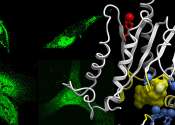Understanding how bacteria come back from the dead
Salmonella remains a serious cause of food poisoning in the UK and throughout the EU, in part due to its ability to thrive and quickly adapt to the different environments in which it can grow. New research involving a team ...







